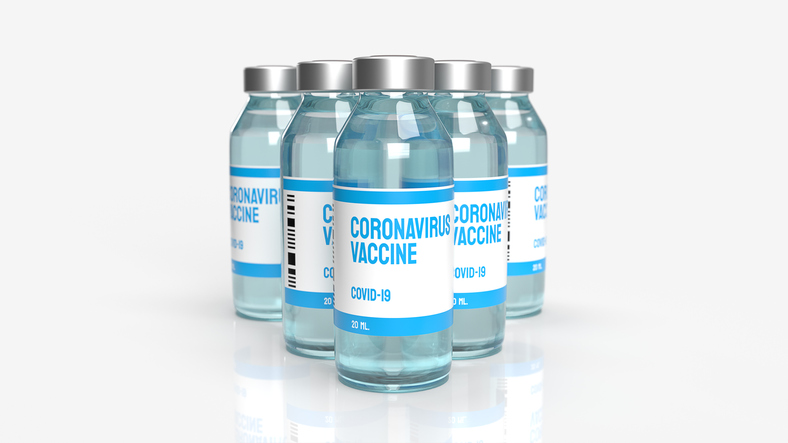A recent The Annals of Thoracic Surgery journal study reports that the survival rate of lung transplant (LT) recipients who experienced respiratory failure following infection with the severe acute respiratory syndrome coronavirus 2 (SARS-CoV-2) was not significantly different than the survival rates among patients who received an LT due to other lung etiologies. Read more in News Medical Life Sciences.
I Won’t Be Tossing My Mask Any Time Soon
— Hospital masking is about more than just us healthcare workers
During a television interview on September 18, everyone heard President Biden say “the pandemic is over.” Healthcare workers want this to be true as much as anyone else, but is it?
After 2 and a half years, we have certainly come a long way. First, we learned about how to best care for patients with COVID-19. Then, we developed multiple therapeutics to treat the infection. And perhaps most importantly, we have administered more than 12 billion COVID-19 vaccinations worldwide to prevent serious disease and death.
Read more in MedPage Today.
Streamlined COVID-19 guidance for people who are moderately or severely immunocompromised now available
The CDC has recently streamlined its guidance for COVID-19 vaccines and Evusheld, a preventive COVID-19 treatment, known as pre-exposure prophylaxis (PrEP), for people who are moderately or severely immunocompromised, including people who are kidney transplant recipients. Read the full article from National Kidney Foundation here.
Myocarditis, pericarditis remains rare after COVID-19 booster
Myocarditis and pericarditis after COVID-19 vaccination is rare across demographic groups and most likely to occur in teen boys in the week after their second shot of a two-dose vaccine, according to a study.
It was also more likely to occur after a booster shot compared with a first dose of vaccine, the study showed. Read the full story in Healio.
FDA: Evusheld may lack efficacy against upcoming COVID-19 subvariants
Evusheld demonstrates reduced protection against the omicron subvariant BA.4.6, resulting in an increased risk for infection in those exposed to that COVID-19 strain, according to an updated FDA fact sheet.
In the revised fact sheet, the FDA warned that providers should be aware of an increased risk for developing COVID-19 when exposed to certain COVID-19 variants that are not neutralized by tixagevimab packaged with cilgavimab (Evusheld, AstraZeneca).
Read the full story in Healio.
Lung transplant recipients remain at high risk for severe disease, mortality from omicron variant
Despite a lower overall mortality rate, lung transplant recipients remain at high risk for severe disease and death from the COVID-19 omicron variant compared with both the general population and other respiratory infections.
“[The omicron variant] is shown to be associated with lower severity of illness in the general population, particularly among the vaccinated, compared to the preceding variants,” Jamie Hum, DNP, lung transplant nurse practitioner in the division of pulmonary and critical care medicine and with the Lung Transplant Program at NewYork-Presbyterian/Columbia University Irving Medical Center, and colleagues wrote in Annals of the American Thoracic Society. Read more in Healio.
Remdesivir-Resistant Version of COVID-19 Detected in Organ Transplant Recipients
Recent studies have shown that patients with weakened immune systems—which enables the virus that causes COVID-19 to remain longer in the body, copy itself, and continually change—may enable the development of new, slightly different versions of the virus (variants). These people include those treated with drugs that suppress the immune system to keep it from rejecting a newly transplanted organ.
A new study led by researchers at NYU Grossman School of Medicine and NYU Long Island School of Medicine shows that two people with kidney transplants who were treated with immunosuppressive drugs, and who later had a lengthy COVID-19 infection, developed a version of the virus with a genetic change (mutation) that made it resistant to the antiviral therapy remdesivir. Read more from NYU Langone Health News Hub.
What you need to know about COVID-19 in 2022
As has been previously reported and most already know, the virus that causes COVID-19 changes over time. The updated COVID-19 vaccine bivalent boosters include components of the original virus strain and the Omicron variant. This updated booster is called a bivalent COVID-19 vaccine booster because it is effective against two different strains of the virus
The updated COVID-19 vaccine boosters are designed to give you broad protection against COVID-19, including better protection against the Omicron variant. Read more from the National Kidney Foundation.
Here’s How to Avoid a COVID-19 Vaccine Mix-Up
— And what to do if it happens to you
Recognizing the potential for vaccine administration errors with look-alike vials, CDC staff shared best practices for giving the right vaccine to the right person at the right dose, during a Clinician Outreach and Communication Activity (COCA) webinar earlier this week.
The most concerning possible vaccination error would be that a child might receive a higher dose of vaccine than indicated for his or her age, because of the potential for increased reactogenicity — for example an arm that is more sore than normal or a fever — Elisha Hall, PhD, Clinical Guidelines Lead and a Health Education Specialist for the CDC, told MedPage Today in a follow-up phone call. Read the full story in MedPage Today.
Inflammation a Culprit in Long COVID Heart Problems
— Prospective study illuminates mechanisms of lingering heart issues after mild COVID-19
While long COVID holds many mysteries, researchers found clues to the heart symptoms common in these patients, which pointed to ongoing inflammation as the mediator.
In a cohort of 346 previously healthy patients with initially mild COVID-19, most seen for lingering symptoms a median of around 4 months later, structural heart disease and elevated biomarkers for cardiac injury or dysfunction were rare. Read the full story in MedPage Today.






